Interviews by Lipika Goel and Charlotte Gregory
Interviews have been edited for concision and clarity.
Rohan Kumar
UCLA (Math)
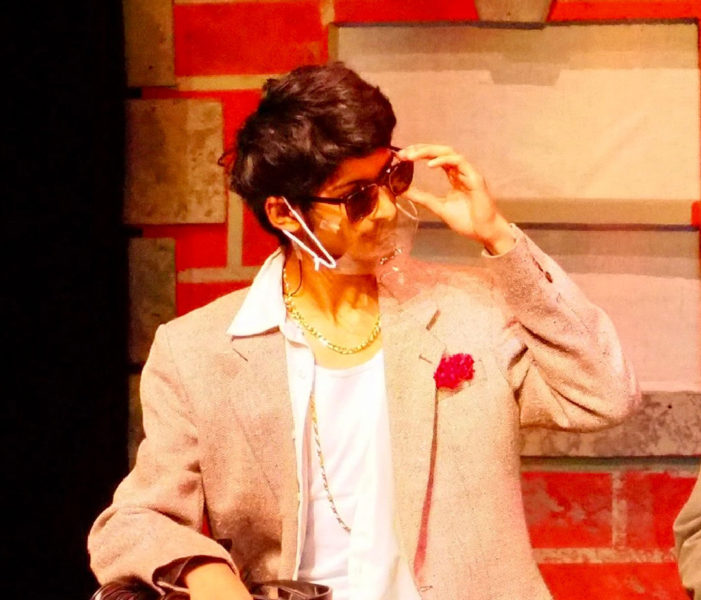
Where are you attending college and what will you be majoring in? How did you become interested in that major?
I’m going to the University of California, Los Angeles. I think UCLA is the perfect place for me. [It has] diversity, kindness and great weather. I’m planning on being a math major … because it seems pretty cool [and] I’m really good at it. When I was in second grade, I had this really hard math problem. It was like, “How do you multiply two digit numbers?,” and I got it right. Then my teacher said, “You’re really good at math. You should be a mathematician.” So that’s been my dream ever since.
Beyond mathematics, what other interests do you want to pursue at UCLA?
Some of my hobbies outside of mathematics are doing theater and having fun. I’m going to see if I can join the theater program [at UCLA]. I actually have a history with Aragon Drama, and now I really want to do it at UCLA. I was in “Shakespeare in Love,” but I didn’t actually perform because it got canceled because [of] COVID-19. My best role was in “Legally Blonde” as the ensemble. I like how theater lets me express myself. I [also] get to meet so many amazing people.
How are you going to balance schoolwork with having fun and enjoying your college experience?
We’ll see what happens when I get there. There’s a lot of things to do, places to visit and people to meet. I am going to go to [the] library every weekend. I am [also] going to focus on studying because I care about getting a 4.0 GPA. I’m very excited to start this new chapter in my life.
Stephanie Fernandez
Cañada College (Radiology)
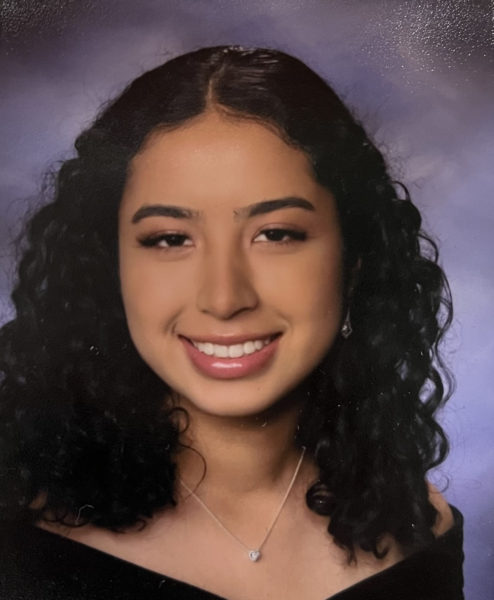
What are you planning on doing after graduating?
I plan on going to Cañada, which is a community college, and then in the first two [or] three years, just depending on when I finish, I’m gonna do my general ed — what Cañada requires — and then my prerequisites for the radiology program. [The program] receives probably like 500 applications, but they only take like 30. It’s based on grades, so … hopefully I get in when I apply.
Why radiology?
I’ve always been interested in working in healthcare, so I was like, “Oh, I’ll be a doctor or something.” But, … I don’t want to go to med school. [Then] I was like, “Maybe I’ll be a nurse.” But, … the nursing classes are so impacted because a lot of people want to be nurses. Then, when the counselors came to talk to us, they were just showing different programs that the community colleges offer and I saw that Cañada offers radiology, so I looked more into it. Your senior year they make you do a career research project, so I did that on a radiologic technologist. Just listening to [the radiographer] speak about what he does and how he helps people … made me want to do it even more.
Do you know what you might want to do after going through the radiology program?
[After] the program, … you could just work in the hospitals [as] an extra person, but … you could [also] cross-train into different things, … like CT [or] MRI [scans]. Right now, I think I would want to stay [in] general X-ray because then I could work in a trauma center [and] see all the different broken bones and gunshots and then help [people] with the accident. In a trauma center, you really never know what you’re gonna get because … bad things happen to people every day. I feel like if I were to specialize in an area, then probably [there] would be less variety of what I see.
What would be your advice to anyone who’s planning on going to college?
I would say probably just do your research. Two years ago, I didn’t know that there [were] programs to be a [radiology] tech. I always knew X-ray people existed, but I always thought they went to med school with everyone else. Basically, I thought if you worked in a hospital and you weren’t a nurse, you had to go to med school. Obviously, that’s not true. Do your research, because then you could find out how to get to the place that you want to and discover new jobs too.
Jasmin Aylsworth
University of New Haven (Forensic Sciences)
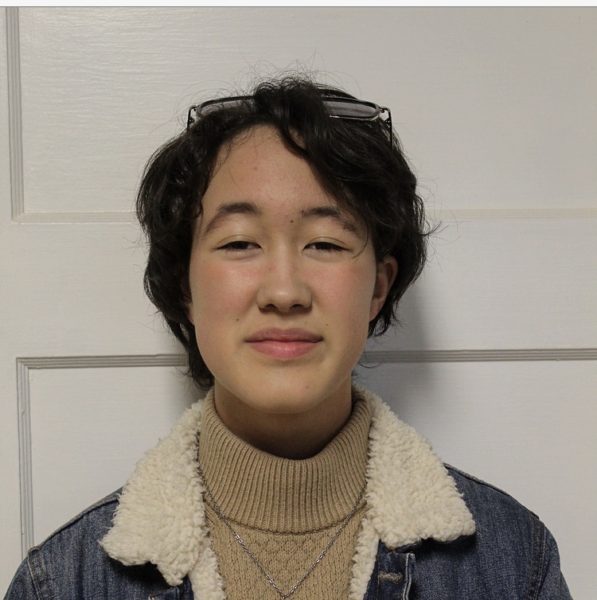
How did you end up with the major that you’re in?
I grew up in a family where we had a few cops and more people in the law aspect of the world, so there were certain kinds of television shows on when I was growing up … like “Law & Order,” “NCIS” [and] “Forensic Files.” Eventually, I got more invested in them, [and] … once I hit high school, [Aragon’s] two-class biotech program … gave me the opportunity to explore the more lab-based part of forensic science. The biotech labs at Aragon and Ms. Ward specifically really gave me the opportunity to learn the skills and get used to the environment that I would be in as a forensic technician, [which] really gave me the confidence to go for this major. There’s so many opportunities within the major, whether you want to do research or work for a company or do [something else]. It was a good way for me to find something I really wanted, but still have the opportunity to explore it a little more in college when there’s more specific [areas] I could go into. [For example], DNA fingerprinting [is something] we’ve actually been studying in biotech, but … as a major I can [work with] more advanced technology.
How did you know you wanted to go into the lab part of criminology versus the field work?
I am personally less of a people person, and growing up with police officers, I realized that wasn’t really the route I wanted to take. [I’m more interested in] thinking [more] about the psychological connections between people and interviewing [them]. Honestly, I do not want to be in [the] direct line of fire on a regular basis; that’s not something I’m comfortable with as a person. When I found that there was a way I could be a part of that community in a … STEM-based way, which is my happy place, I was really excited.
What intrigues you about criminology versus biotech or some other type of lab science?
As a kid, there [was] this one character in NCIS, … Abby Sciuto, [the original forensic scientist], and there [were] just so many aspects about her that I admired as a kid. She’s a little frightening on the outside … but there were certain skills that she had through lab work. It was the specificity of the job that first intrigued me. In biotech and other lab sciences, there’s so many options for research, … [and] even through forensics, I still have the opportunity to do research … if I [choose] to do so. It just opens a lot of different doors that I could go back and forth between.
Did you ever consider anything besides criminology and forensics?
[In middle school,] I thought I was going to be a writer or a famous baker. It’s … that period of time where you’re not a little kid who wants to be an astronaut anymore because you’re like, “Oh, I have to learn certain things for that.” I realized that creative writing isn’t my strong suit, but lab writing came really easily to me. Statistical analysis of my findings was more interesting to me than fictional writing. Baking, I realized, was more of a hobby. Once I re-found forensics and realized it was a major I could achieve, [along with joining] the biotech program, I found I actually really loved it and there were so many opportunities for me. I think I finalized that around my freshman year of high school.
How did you know that you wanted to go to the college that you are for forensics?
[The only school in California that] has forensic science as a major [is] a Lutheran Baptist University somewhere in the East Bay. I didn’t really align with their way of teaching or how they interpreted religion in their sciences, so I had to start looking out of state. I [liked schools in] Oregon and Washington, but [the Midwest] didn’t have many opportunities. [Because of this], I went from Oregon … all the way to Chicago. I found a school I really liked there: Loyola University. One of my friends, who was doing a tour on the East Coast for a bunch of schools he wanted to go to … would FaceTime me while he was on the college tours, … so I got to see all these cool schools. One day, he passed [the] school that I am attending now: University of New Haven. [They] decided they were going to stop for lunch and he went to go check out the college. Because they … decided to get some sandwiches or something, he found out that [it] was the number one college for forensic science. Within [the] University of New Haven is the Henry C. Lee College of Forensic Sciences. [Lee] is apparently a huge deal in the world of forensics. I got a phone call when [my friend] got off campus, and he’s like, “I found the school for you.” [I] did research for months and months after [and] realized it was the perfect school for forensic science. It has a lot of consideration for further education after college, … they’re really … eco-friendly, … prioritize safety and [have] other things that [are] really important to me as someone who’s moving across the United States. Eventually, I applied, and they did an early decision day where you could meet with a admissions counselor on Zoom for a one-on-one meeting … last December. Josh Keeler, [the admissions counselor], was so excited that I was applying because he just moved there from California. He [was] like, “Oh, my God, Jasmine, you won’t believe it. It snows here and it rains more than two hours at a time. It’s insane, you’re gonna love it.” I got admitted, and now we’re heading out there next August. It’s definitely an interesting story of how I found out because otherwise, I might [have been] in Chicago this fall.
Do you know what you might want to do after college?
I haven’t really figured out exactly what I’m going to do yet, [but] I’m applying for internships that I can do as a student. Hopefully that will bring in some other opportunities. Networking is really important, so I’m hoping to get some contacts out of the internship and work with some of the teachers. Another opportunity that I have from the biotech program at Aragon is [that] I have a lot of lab skills that junior-level students at university have. Showing my lab notebooks and having that proof of experience … gives me the opportunity to … walk up to one of the university teachers and be like, “Hey, I’m really interested in the research you’re doing right now. Are you interested in having an intern come in and do some lab work for you or just read over papers?” That’s … my foot in the door to the professional world, … so I can translate what I’ve learned now into my [college] classes, making freshman and sophomore year a little easier on me. [It] also gives me opportunities to work with adults who are already in different aspects of the forensic world, so I can try out different [aspects of the field]. Thanks to biotech, I have more opportunities to try out the different aspects of the forensics world before I graduate, so by the time I do [graduate] I will have figured out which way I want to go.
Pascal Nguyen
UC Merced or Naval Academy (Military Science)
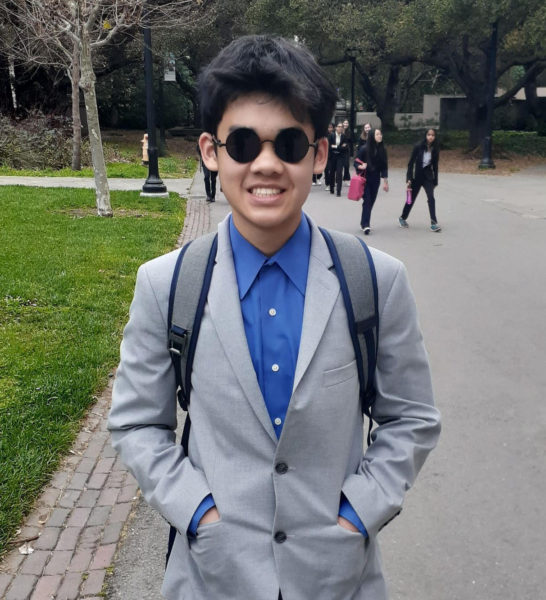
What inspired you to want to attend the Naval Academy?
What inspired me was my interest in military science and the sense of wanting to serve a greater purpose than my own … [I was inspired to pursue] military science [because of a] fascination with the strategy and thought process of deploying a military, not just for conflict, but also sometimes humanitarian or even political purposes. … I was [also] a youth minister [and] leader at my local church, and [that helped me] in getting the idea of helping others.
What was the process like applying to the [two] colleges?
For the Naval Academy, it was about a two-year process going from junior [year] all the way to senior [year], mostly getting letters of recommendation, as well as going to multiple interviews. [I also had to get] cleared by the Department of Defense medically, [train] physically for it over the two years and [take] the test for that as well. Other than that, everything else was the same. [For the University of California], Merced; I didn’t actually apply at all, they reached out to me and offered me an admission offer.
What has the reaction of your friends and family been?
Originally, I think my friends were a bit surprised that I chose it, and then my family … [has] been generally pretty supportive. While there hasn’t been a whole history in my family of serving, I think there generally is a tradition of being called up to do what you have to do. My grandparents were drafted in the South Vietnamese Army, and they served [in the war]… and then my uncle also served in the Navy during the Iraq and Afghan war.
What advice would you give to someone who might want to try something in the military?
I would recommend going to any of the summer programs that the academies offer and reaching out to them that way, as well as trying to shadow their campuses because the campuses … are very great. Touring the Naval Academy myself, I got to see how beautiful it was and how it does actually look like a college campus. It’s also interesting to see the military aesthetic too, like the military parades … that they hold.
Abigail Madrigal
NYU (Politics and Law)
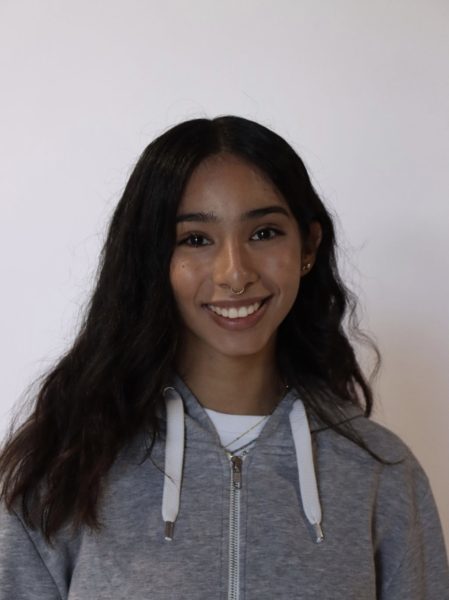
What will you be majoring in at New York University, and what inspired you to choose said major?
I’m doing a major in Politics [and] a minor in Law. I had an interaction with a lawyer when I was really young, and I immediately thought it was so cool what they did. Then when I got to middle school and they started talking about … careers and stuff like that, I just knew that that’s what I wanted to do.
In the future, after college, would you consider pursuing law school?
I would. Originally, my plan was to take a [gap year], because I thought I would have to take out loans, and that can be a lot of money. Luckily, I received a full ride. I’m going to try [to] immediately go into law school. I don’t see myself going to NYU Law. I probably want to go somewhere else [but] it gives me an upper hand that I graduated from NYU to then enter a law school.
What inspired you to study abroad at the NYU campus in Madrid, and how will it be different from the campus in New York?
NYU [has] a lot of campuses all over, like [in] Shanghai and Abu Dhabi, but I already speak Spanish … and Madrid seemed like a good place. It’s completely different [than New York]. In Spain, it’s more of a leisure lifestyle; it’s more calm, whereas New York is very much for a fast- paced hustle and bustle type. I think I want that bit of calmness, while also getting school done.
Do you have any fears or doubts over moving halfway across the world?
I’m going to miss people that are leaving. A lot of my friends are going to UCs, and they’re kind of scattered around LA and San Diego, and I’m going across the world. So that kind of sucks, and I get a really bad fear of missing out. [There’s also] my little sister. She’s five months old, and I don’t want to miss out on that. I don’t think I’m gonna miss the Bay Area as much as I’m gonna miss people, but everyone’s scattered. Everyone’s going all over the place, and I think it’s … really big and important. We’re all growing.
Alex Kachouti
CSM (Graphic Design or Video Production)
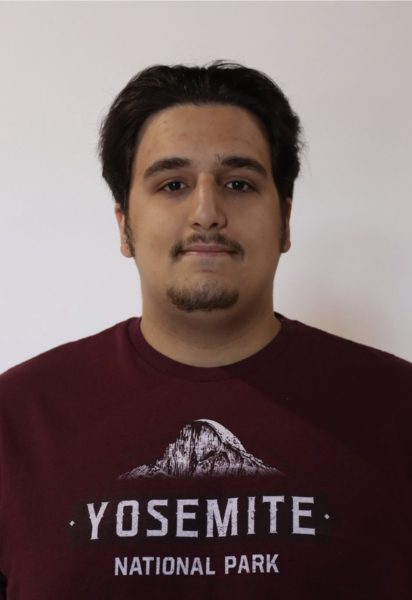
What will you be majoring in, and what inspired you to choose said major?
I’m deciding between graphic design and video production. I’m not sure yet between the two [because] … I have an interest in video editing and making videos and I’d also like to learn graphic design, how to draw and whatnot. Watching a lot of YouTube as a kid … inspired me, but I haven’t been … practicing it all that much, which is why I wish to improve upon that [at the College of San Mateo].
Is graphic design something you want to pursue in the future, or is this another path you’re considering?
It’s honestly a backup for me. If I have to, I’ll make a career out of it, because currently I do real estate. Real estate is buying and selling homes. You need a license to do it. I just got licensed fairly recently. Soon I’ll begin work [which includes] touring homes, writing up contracts, connecting clients with other agents, things like that.
How did you become interested in real estate?
It’s something I’ve thought about on and off over the years, but never took seriously until I attended an open house … that was on my street. The agents were lovely people, and they offered me a job. That’s what got me working in the field.
What process did you go through in order to get your real estate license?
You need to take three prerequisite courses, each of which has an exam. After taking those courses you upload the course certificates to the Department of Real Estate website. They get back to you in usually about a month or two with the option to choose an exam date. Once you complete your final exam with a passing score … they issue you your license. The process can take anywhere from three to six months.
How would you encourage other students to explore real estate as a potential career path?
There’s always going to be a demand for houses and commercial properties. There’s a lot of money to be made in real estate. You set your hours and you can work as much as you want [and] make as much money as you want. If you don’t want to go to college, or you want to make a lot of money, real estate is definitely something to explore.
Shiho Takatoku
(possibly studying abroad) Political Science and Economics
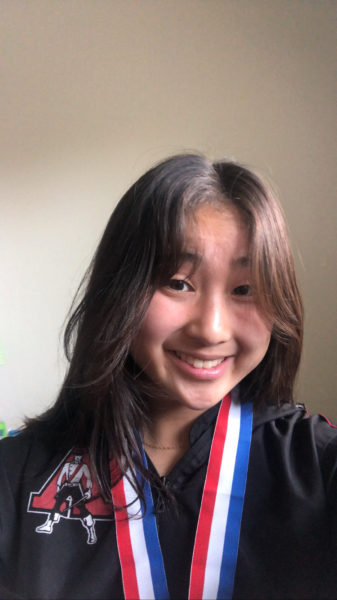
What inspired you to even think about going abroad?
I’m Japanese, so it’s my country and I’ve just always been in love with … Japanese culture and my heritage. I have always taken Japanese classes outside of school, … so I’m pretty fluent. I feel like if I go to Japan, I have this opportunity of improving my Japanese skills and being more immersed in my own culture, which I think is pretty cool. The program that I got in for [is mostly] international students, so … there’d just be a lot more people from other countries, which I think is also cool.
What was the process of applying to a college in Japan like? Was it different from applying to college here?
It was pretty similar. I felt like it was a lot more work because … they didn’t make SAT [scores] and [other materials] optional [so] we still had to submit that. We had a lot of … supplementals, and then letters of [recommendation], but I would say that it’s pretty similar in [the] application format that I had to do.
What inspired you to choose Political Science and Economics as your major? Did taking Economics this year impact your understanding of it in any way?
I’m just pretty interested in … economics. I thought it’d be a good major to go through and a good base for whatever I want to do in the future. [Taking economics] definitely did help me … learn more about what we would do in Economics. I did pretty well in what we did [in class] so I felt more comfortable with my major. Obviously, if you’re not too comfortable with it, then you wouldn’t choose that major.
What would be your advice to someone who might want to study abroad?
Definitely just do research on wherever you want to go and just go for it if [you’re] interested. Give it a try because it’s a great opportunity to learn about the culture of whichever other country [you’re] going to.
Courtney Tai
UC Davis (Animal Biology)
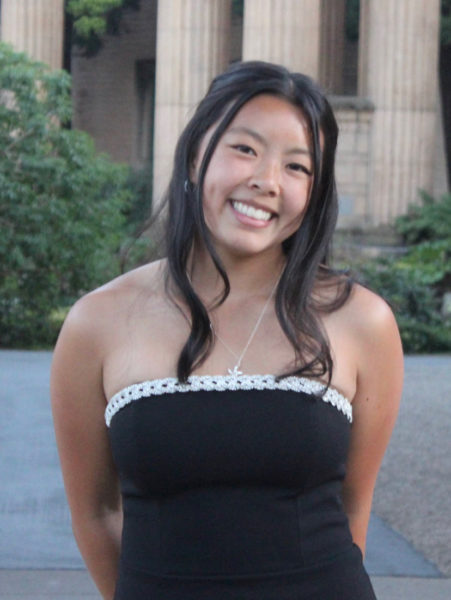
How did you become interested in Animal Biology?
I’ve always really liked animals [and] I wanted to help them in some way. I did some different camps and internships that related to veterinary work and working with animals in general. That really grew my passion for it. I went to Costa Rica for three weeks for a veterinary program, and there, we would watch professional vets spay and neuter dogs and cats. That was really cool because I could see the actual process of what it’s like to be a veterinarian. We also got to work with farm animals and exotic animals. Overall, that really pushed [me] to pursue a career working with animals.
What types of careers are there within Animal Biology, and which ones are you considering pursuing?
You can be a veterinarian, but there’s also animal rehabilitation or conservation work for certain species. You can also go into research to help species that are on the brink of extinction. That would be cool, to help bring back species that are extinct and work to rebuild their habitats. I personally would want to work with either exotic animals or domestic ones, like pets. I’m not really much like a farm animal person, but I’m still open to it.
Why is the University of California, Davis, a good place for you to pursue Animal Biology?
UC Davis is the number one school for veterinary medicine, so that’s what drew me to applying there. They’re very good for that. [UC Davis is] in a rural area, so there’s a lot of open space, [and] they have animals on site. There’s hands-on opportunities.




